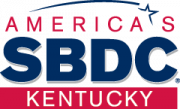Whether you need money to open your business or to support operations through seasonal fluctuations, in most cases, you must approach a banker for a loan. Bankers have guidelines for evaluating business loans and generally prefer certain types of loans and business sectors. Investigate the banks in your community, and identify those that will lend to your type of business.
No matter what type of loan application you submit, the bank will expect you to make a loan presentation that adequately illustrates your knowledge of the business, the competition, the market, the potential for sales, and the cost of doing business. Expect to present a business plan complete with cash- flow statements, balance sheets and pro forma financial statements.
The Small Business Administration (SBA) has several primary business loan programs where the SBA serves as a guarantor for a portion of the loan (except for Microloans). These are:
The distinguishing features for these programs are the total dollar amounts that can be borrowed, the type of lenders who can provide these loans, the uses for the loan proceeds, and the terms placed on the borrower.
SBA’s loan programs provide a key source of financing for small businesses that have real potential, but cannot qualify for loans from the lending institutions on their own. The three principle players in most of these programs are – the applicant small business, the lender, and the SBA. The lender analyzes the application to see if it meets both the lender’s criteria as well as SBA’s requirements. SBA will look to the lender to do much, if not all, of the analysis before it provides its guaranty on the lender’s loan.
Note: The SBA does not offer grants to individual business owners to start or grow a business.
